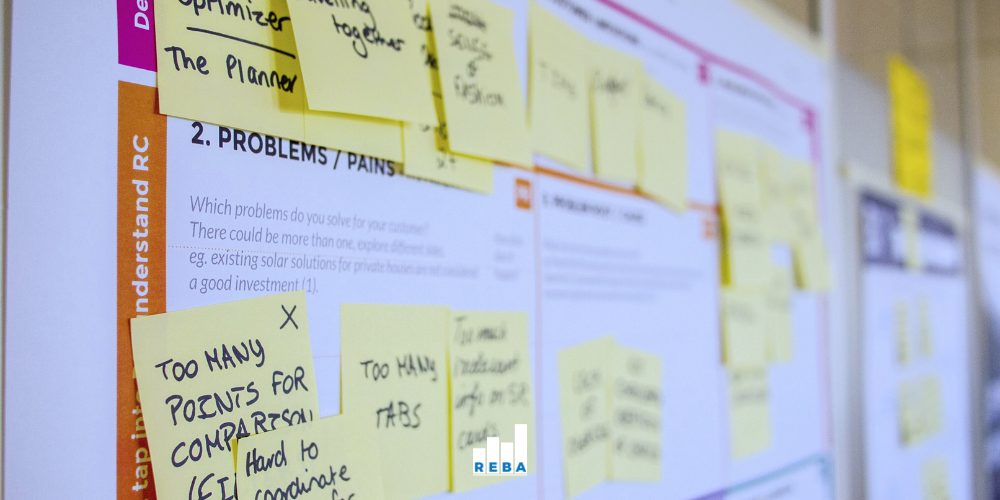What an incredible year 2023 has been, both exciting and challenging at the same time. At REBA, we’ve transitioned from an early tech start-up to a fast-growth company which has been an incredibly exciting chapter in our journey. As I reflect on this past year, I think of things in three large categories: the American economy overall, the multifamily housing industry in particular and then of course what has happened at REBA.
The American Economy
What an incredible journey in just 12 months! At the beginning of the year, the consensus among economists was that we were almost sure to experience a recession in late 2023 or early 2024. If, at the time, we had told you that Silicon Valley Bank was going to go under and lead fears of regional bank contagion, Congress was going to play chicken with defaulting on US debt, the Fed was going to continue to raise rates to the highest in about two decades and fourth quarter would close with war in the Middle East, I’m pretty sure you would have felt recession was guaranteed.
Yet here we are with what appears to be a soft landing. The Fed is signaling an end to rate increases and even foreshadowing rate decreases in 2024; inflation is down to nearly 3%; job growth remains strong; the stock market is (at least today) at record levels; and CRE defaults, while slightly up, are nowhere near the levels many would have expected. There are headwinds—at the time of writing this, most cargo ship companies have stopped shipping through the Red Sea which could drive a new round of inflation—but there are always headwinds and tailwinds.
And I would remind readers that a material portion of the consumer price index (CPI) is directly and indirectly tied to housing inflation. Those calculations are based on “in place” costs which are MUCH higher than current “spot prices” (i.e. new rents) as reported by both Yardi and Realpage. That gives us at least another 6 months of virtually guaranteed inflation reduction in the housing component of CPI.
The Multifamily Housing Industry
It’s hard to start a discussion about proptech and multifamily housing without touching on “generative AI.” My perception is that this is a classic case of Gartner’s Tech Hype Cycle. While I’m sure GenAI will get to the “Plateau of Productivity,” it is currently at best coming off the “Peak of Inflated Expectations” (maybe not even quite there yet). At OpTech, I experienced perhaps the highest ratio of “discussion/buzz” to “actual examples of meaningful use” of any technology I’ve seen come to market.
To be precise, I’m not talking about the type of AI that has given us EliseAI or LeaseHawk. Those have well-established value propositions. But I do think we’re at least months (maybe years) away from GenAI being a ubiquitous game changer. BTW, for a great example of the “Trough of Disillusionment,” Google “ChatGPT causes lawyer to be fired.”
Next on the list has to be centralization. It feels like this topic has moved from a “new, shiny idea” dominated more by talk and early adopter examples to one where most operators have decided on their plan and are executing on it. Like many other technologies, we’ll see slowly growing adoption and equally growing value. No “big bang”—just continuous improvement.
Now that we have this year’s and last year’s biggest hype topics out of the way, let’s focus on the two developments that will actually have the biggest impact on 2024.
First up is the transition to slow rent growth. Everyone knew it was coming, but the recently concluded budget season made it obvious how anemic revenue growth will likely be in 2024. This has scared a lot of operators into backing off on proptech investments. In many cases this is wise, and in others, it is quite reactionary and unwise.
I’m reminded of academic studies that have shown many of the best tech companies started during recessions. It’s easy to get money and customers in flush times; only the best ideas can get capital and customers in tough times. It reminds me of the situation where I’m coming up on a red light. I’m in the left lane and no one is in front of me. Meanwhile, there are cars stopped in the right lane. If I time it right, I can still be moving when the light turns green, and I quickly pass the other cars. Metaphorically, those cars stopped investing because of their fear while I kept investing (maybe at a slower pace) and was moving as the recession fades. That’s why I believe the operators who will do the best in 2025 are those who continue to invest in their tech platform in 2024.
Second is the regulatory and legal environment. Rent control is the single biggest threat to our industry. Study after study has proven that rent control leads to long-term problems: deferred maintenance, disinterested owners and the general decline in the quantity and quality of housing. But that’s a hard message for voters to accept when populist politicians are promising the magic of short-term relief. Thankfully, organizations like NMHC and NAA are fighting to get real solutions, e.g. better policies making it easier to add supply where supply is needed. The best thing we can do is support those efforts.
And of course, there’s the elephant in the room—the various lawsuits alleging price collusion through the use of revenue management software. This is the biggest issue that no one talks about—not because it’s not big, but because everyone’s attorneys are telling them not to talk about it. The reality is that this is likely to take years to work out, so people will transition from their early fears of what to do to making material decisions in 2024. And there are useful models out there to avoid legal jeopardy as proven by AvalonBay’s ability to get removed from the first lawsuit.
I was proud to be a co-author of a white paper with lead author Dom Beveridge, methodically working through all the fallacies in those claims and the Oct. 15 ProPublica article that launched this cycle of legal activity. I was equally proud to co-author a paper on contemporary pricing and revenue management (PRM) with my REBA colleagues, Chris Brust and Brad Schell. Having led the team that built the first PRM system back in 1999-2001, it’s great to lead the charge to bring 24 years of experience to what those systems should be now.
Real Estate Business Analytics
Here at REBA, we had a great 2023. We closed a $6M up round in an environment where many tech companies are experiencing down rounds or simply closing up shop. We met our BHAG to triple our revenue in 2023, we continued to enhance and expand our customizable BI platform and we successfully launched v3 of REBA Budget. And in what I predict we will see as an inflection point years from now, we hit our general release date for REBA Rent, a contemporary PRM solution that gives options to the industry and will break up the near-monopoly on PRM software that one vendor provides.
Yet for all those successes in fundraising and product development, the thing accomplishment we are most proud of is winning 3rd place in Best Places to Work in Multifamily and 3rd place in the Best Places to Work in Multifamily for Women competition. It’s a testament to our team and culture—one that we will continue to build upon in 2024!





SHARE